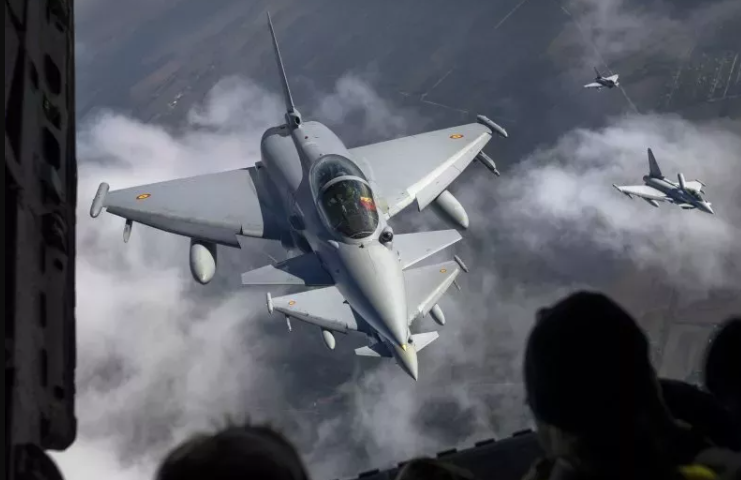On Saturday, the Latvian Air Force said that NATO fighter jets had been scrambling to intercept five Russian military aircraft flying over the Baltic Sea without flight plans or operating transponders.
The NATO operation, Baltic Air Policing, swiftly responded to the reports regarding the jets that came in separately on Friday and Saturday.
The Latvian Air Force said the Russian planes were flying in international airspace near the Baltic republics, but they had not switched on their transponders, electronic devices that help maintain safe air traffic control.
The Kyiv Independent had explained that “Russian planes had regularly entered the airspace above the Baltics with transponders switched off, likely to test the response of NATO states,” providing examples of previous incidents.
The presence of the Russian aircraft was detected and then shadowed by Eurofighter fighters stationed in Latvia.
The German Air Force contributing to NATO’s Baltic Air Policing identified the aircraft as a formation of five: one Sukhoi Su-35 and four Sukhoi Su-30MKIs.
This is just another incident in a growing number of such incidents between planes from NATO and Russia over the Baltic Sea.
Another incident on Tuesday involved an unidentified object that Latvian radar detected near the Belarusian border, for which NATO issued another alert. When fighter jets scrambled from the Lielvarde Air Base arrived to investigate it, no dangerous elements were found in Latvian airspace.
The Latvian Defense Ministry later revealed the unidentified piece of debris to be “a flock of birds.”
Riga, which cited its air force, reported increased monitoring of airspace after an incident earlier this month when a Russian drone of the Shahid type was said to have infiltrated its airspace in coordination with NATO allies.
On September 7, the Shahed drone with explosives on board fell in Latvia’s district of Rezekne, in the Gaigalava parish. The Latvian Armed Forces stated that this drone flew from Belarus, and the information obtained from it testified that it had a target in Ukraine but lost its direction and fell:.
Article 5 of NATO states that in the event of an armed attack against a member state, all other members will assist the member under attack. Only once in the past seventy-five years, since the terrorist attacks on 9/11, has Article 5 been invoked. Since Russian President Vladimir Putin launched a full-scale invasion of Ukraine in February 2022, many have feared that the war could spill over into NATO allies Poland or one of the Baltic states: Estonia, Latvia, or Lithuania.
Yet Putin has said he will not attack them. In an interview this past February with Tucker Carlson, a former Fox News personality, he said Moscow does not have any interest in invading “Poland, Latvia, or anywhere else.”














